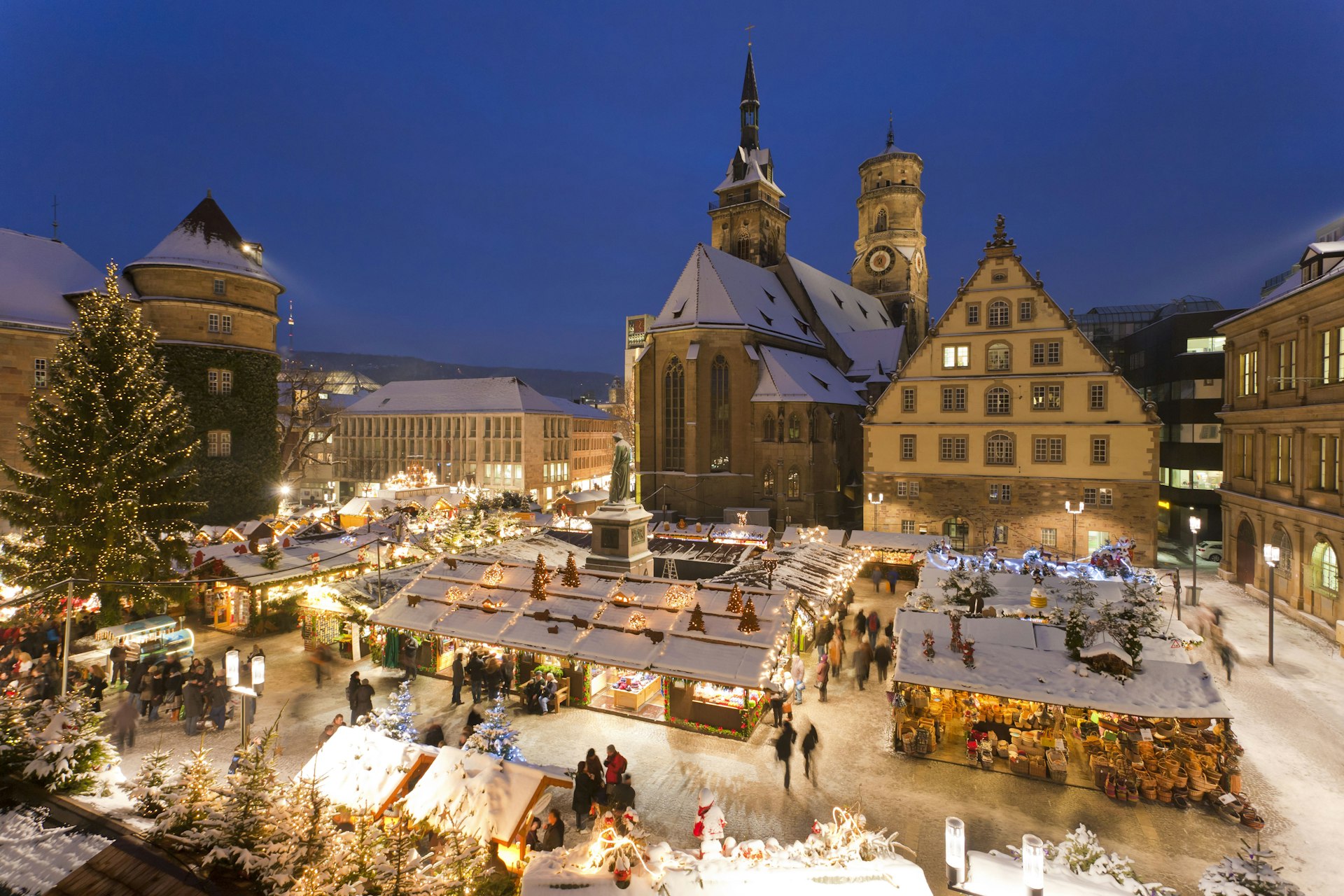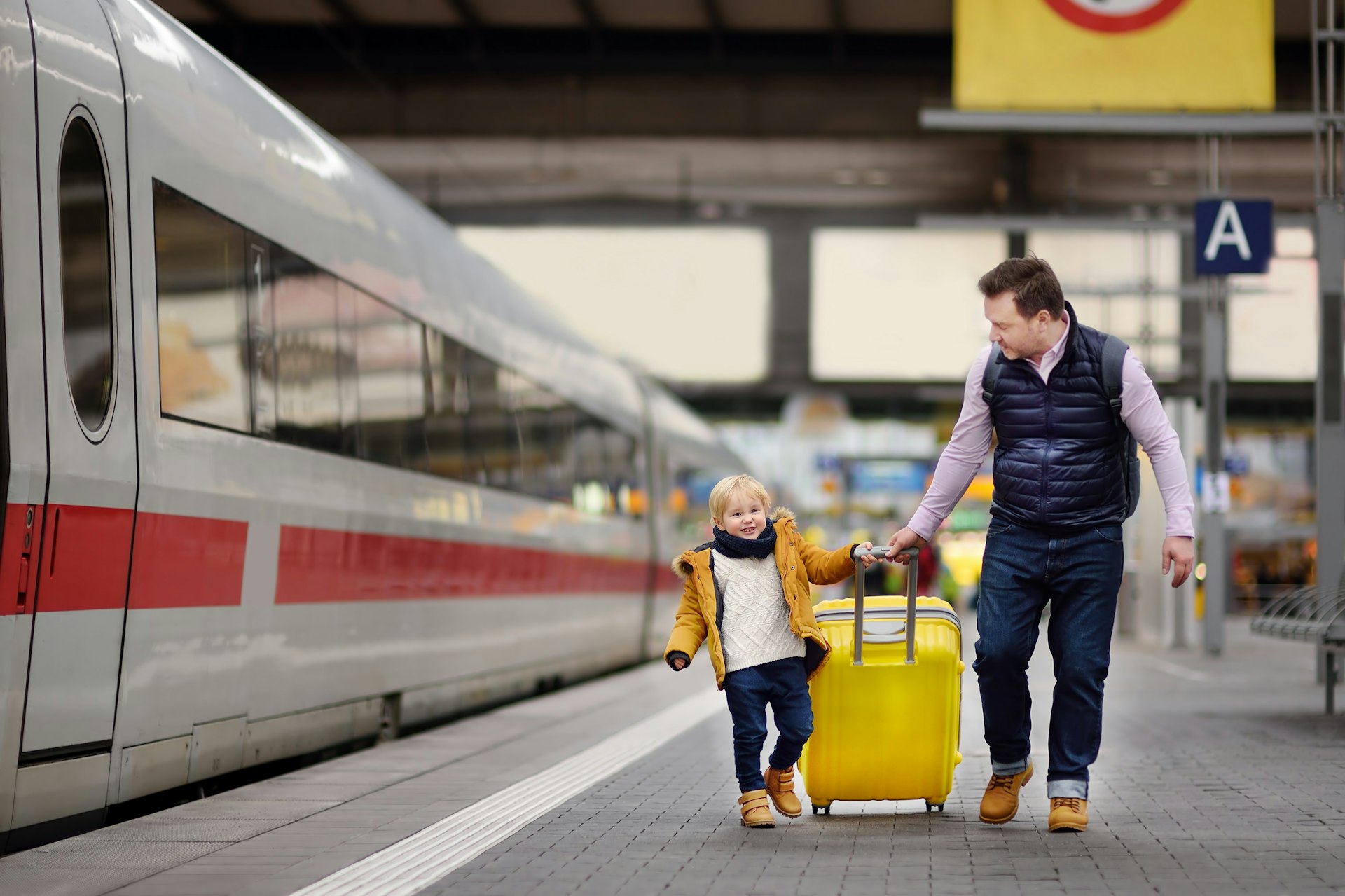Western Europe’s most populous country doesn’t always spring to mind as a low-cost destination. However, in a place this big and diverse, there will always be a smarter way to spend your euros.
When you consider the wealth of attractions this dynamic, multi-faceted country offers – western Europe’s largest broadleaf forests, cities of impeccable cultural pedigree, historic sights beyond numbering – it pays to do a little up-front research. Whether it’s fun times at free festivals, getting your hands dirty working on an organic farm, or getting the best value from Germany’s exceptional transport options, there are plenty of ways to see this stunning country on a budget. Read on, for the best budget hacks in Germany
1. Book your flights well in advance to snag the best possible deals
Simply flying into Germany can constitute one of your biggest expenses, especially if you’re coming from the USA or further afield. While dynamic pricing can throw up some last-minute bargains, you’ll generally get the best deal on your flights if you book long in advance. Traveling midweek, early or late in the day, and outside the peak season (May to September) are other ways to potentially reduce your fare. Due to its many connections, generally Frankfurt is slightly cheaper to fly into than Berlin from the US or the UK.
2. Plan your visit for the shoulder seasons
Germany’s tourism high season falls in the summer and school-holiday months of July and August. Warm weather is matched by higher prices for accommodation (and sometimes food) and greater demand for everything. Conversely, the low winter months of November to March see some attractions and hotels close, although prices do fall almost everywhere except the ski slopes.
For many, the shoulder seasons (April to June and September and October) offer the perfect blend of gentle weather and reduced costs and demand. Be aware that Christmas is a big deal in Germany: while winter is generally cheaper, demand for accommodation in particular can peak from around mid-December.
3. Get yourself a Deutsche Bahn rail pass
Germany’s peerless rail network is often the cheapest means of traversing the country. Deutsche Bahn, Germany’s national rail company, offers fantastic-value rail passes allowing visitors unlimited access to both its own network and services run by affiliated private operators like Bayerische Oberlandbahn and Ostdeutsche Eisenbahn. Choose from either a consecutive pass – good for three, four, five, seven, ten or 15 days in a row – or a non-consecutive pass, good for the same numbers of days taken at any point over a month.
Standard consecutive passes start at €191 for three days, while non-consecutive ones start at €162. Further discounts are possible for two people traveling together on a twin pass (starting at €325 for three consecutive days) and for 12 to 27-year olds, who qualify for youth passes starting at €153. Get the DB Navigator app for tickets, maps and schedules in your palm.
4. Hire an RV and bundle your transport and accommodation costs into one
Germany is one of the cheapest countries in Western Europe for RV hire, and there are plenty of companies competing for your euro. A four-berth motorhome with unlimited mileage will set you back around €1450 to €1600 for a week, plus optional extras such as a child seat (€25 to €30) or snow chains (€65 to €75).
Longer term rentals attract discounts and rental-tax waivers, and it’s cheaper to hire outside peak summer months, especially between October and April. Companies such as Motorvana and Motorhome Republic aggregate reliable rental companies with offices in over 50 German centers, including near all major airports.

5. Plan your itinerary to take in Germany’s many free and low-cost festivals
Festivals of food, drink, music and the arts are a feature of German life throughout the year. Holiday periods and the summer months are particularly festive. For example, free music and excellent, cheap white wine and sekt (sparkling wine) from the Rhine can be found at Berlin’s Rheingauer Weinbrunnen (wine fountain) between May and September. Hundreds gather on flowery Rüdesheimer Platz to enjoy the convivial atmosphere, Mondays to Saturdays from 3-10pm.
Erfurt’s Güldener Herbst is a wonderful festival of early music that brings its many sacred spaces to life in late September and early October. Tickets start from as little as €10. Karneval in Cologne is one of Germany’s most exuberant. Celebrating its bicentenary in 2023, it’s an endless programme of parades and parties that culminates on Ash Wednesday.
6. Visit in the warmer months to make the most of Germany’s wonderful hiking and camping
Forests cover 32% of Germany’s land area, making it one of Europe’s greenest hiking destinations. Over 200,000km of well-signposted trails criss-cross mountains, national parks and biosphere reserves, while an unrivaled community of Wandergastgeber (hiking-friendly hosts) makes accommodation and logistics a dream.
The pine forests and fairy-tale log huts of the Black Forest are the stuff of hiking folklore, to which the Bavarian Alps and Baltic Shore provide glorious counterpoints. The main camping season, when you’ll find all of Germany’s 1200+, well-maintained campsites open, is from May to September. Book ahead in the warmer months, especially during school holidays.

7. If you’re visiting in winter, enjoy the Weihnachtsmärkte (Christmas Markets) for free
While accommodation and flight prices will rise across Christmas, there’s also the free, fabulous enticement of Germany’s many Christmas Markets. Notable Weihnachtsmärkte can be found in Frankfurt’s handsome Altstadt (one of the country’s largest, this market was first recorded in 1393) and around Aachen’s famous cathedral. Cologne’s Christmas Market houses over 160 stalls across the Domplatte and Roncalliplatz, attracting five million visitors per year.
8. Look to Germany’s Turkish communities for cheaper, delicious food
Possibly no other European country, including the UK, has taken to Turkish food so avidly as Germany. With about 2.5% of the population either Turkish born or tracing their roots to Türkiye, you’re never too far from a gözleme (stuffed flatbread), tavuk şiş (chicken skewer) or Adana kebabı (fatty, smoky minced-lamb kebab).
Places we recommend for great Turkish food include Fes Turkish BBQ in Berlin’s cool Kreuzberg district; Orkide Döner in the post-industrial culture hub of Essen; and TÜRKITCH Köfte & Kebap, which has multiple outlets in Munich.

9. Use Germany’s wonderful produce markets and delis to stock up for picnics and self-catering
German produce is excellent, in particular the charcuterie, preserves, dairy products and bread. Fresh-food markets and Feinkostläden (delicatessens) are abundant, especially in the larger cities. Some of the better examples include Münstermann, a legendary deli and bistro that started in 1885 as a simple stall selling eggs on Düsseldorf’s market square; the specialist delis and produce stalls of Hanover’s cavernous Markthalle (covered market); and the swanky Dallmayr Delikatessenhaus in Munich’s photogenic Aldstadt (old town).
10. Join a volunteer program to really immerse yourself in local life
It might be working on an organic permaculture farm, helping with the restoration of a historic train station or helping to build a new cultural center in a rural village: there are plenty of projects looking for visitors to lend a hand.
In return for your labor, you’ll get accommodation, board and the chance to immerse yourself in German culture, make close friends, and perhaps even pick up the language. Sites such as Workaway and Worldwide Opportunities on Organic Farms (WWOOF) are great places to start.
Daily Costs
- Hostel room €25-40 (dorm bed, shoulder season)
- Basic room for two €90-250
- Self-catering apartment (including AirBnB) €110-190 (entry level, shoulder season)
- Public transport ticket €9 (daily, Berlin, Munich, Cologne)
- Coffee €2.50-3.50
- Sandwich €4.50-8
- Dinner for two €50-60 (modest restaurant, with a drink)
- Beer/pint at the bar €4-6
- Average Daily Cost €170-250
